Journalists Symposium 2011:
"The Asia-Pacific Age and Japan’s Diplomacy:
Viewpoints of Japanese and Foreign Media"
(Summary)
March 3, 2011
On March 3, 2011, the Ministry of Foreign Affairs of Japan organized the Journalists Symposium 2011 on the theme of "The Asia-Pacific Age and Japan’s Diplomacy: Viewpoints of Japanese and Foreign Media." Lively discussions took place in two sessions, "Japan’s Diplomacy vis-à-vis the Asia-Pacific-Viewpoints from the Media" and "From the Asia-Pacific to the World-Challenging Global Issues." The following is a summary of the symposium.
1.Outline
- (1)Date: Thursday, March 3, 2011, 13:00–17:00
- (2)Venue: The Hall, Nippon Press Center Building, Tokyo
- (3)Format: Open to the public (approximately 160 attendees)
- (4)Symposium theme: "The Asia-Pacific Age and Japan’s Diplomacy: Viewpoints of Japanese and Foreign Media"
- (5)Chair and speakers (8 persons):
- Chair:
- Mr. Hiroshi Fuse (Japan), Senior Editorial Writer, The Mainichi Newspapers
- Panelists:
- Australia: Mr. Rick Wallace, Tokyo Bureau Chief, The Australian
- China (Hong Kong): Ms. Li Miao, Tokyo Bureau Chief, Hong Kong Phoenix TV
- R.O.K.: Ms. Park So-Young, Tokyo Correspondent, JoongAng Ilbo
- U.S.: Mr. Sam Jameson, former Tokyo Bureau Chief, The Los Angeles Times
- Vietnam: Mr. Dao Thanh Tung, Tokyo Bureau Chief, Vietnam News Agency
- Japan: Mr. Masami Ono, Editorial Writer, The Asahi Shimbun
- Japan: Mr. Takashi Sakamoto, Editorial Writer, The Yomiuri Shimbun
2.Summary of Remarks
(1)Opening Address by MOFA Press Secretary Satoh
At the beginning of the symposium, Mr. Satoru Satoh, Press Secretary of the Ministry of Foreign Affairs (MOFA), delivered an opening address on behalf of the organizer, the Foreign Ministry of Japan. Mr. Satoh stated that looking at coverage by the domestic and international media regarding Japan’s diplomatic policies, he felt that the perspective differed considerably between the Japanese media and the foreign media and also among respective countries. He said that at this symposium, focusing on the theme of the Asia-Pacific region and Japanese diplomacy, he looked forward to stimulating and meaningful discussions on how people involved in the media view the differences in ways of reporting and perspectives among countries and on the role that the media should play.
(2)Session 1: "Japan’s Diplomacy vis-à-vis the Asia-Pacific-Viewpoints from the Media"
- Sam Jameson (kick-off comments):
-
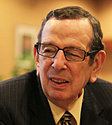 Over the 50 years that I have been here, Japan’s foreign policies have ranged from the selfish to the sublime. I was present as a reporter on the joyful occasion when negotiations on the reversion of Okinawa were finalized. The United States lived up to its pledge in the Atlantic Charter not to fight World War II as a war of territorial aggrandizement by returning Okinawa to Japan. In the meanwhile, the Japanese formula for compromise with the United States became one of adding both portions and taking three-fourths of the total. The high tariffs on imports of US cars in the past were a symbol of this, but under Prime Minister Kakuei Tanaka, America’s trade deficit with Japan was reduced. In its diplomacy, as seen in the example of the secret agreement on America’s introducing nuclear weapons into Japan, Japan adopted a strategy of concealing the truth for the sake of its interests.
Over the 50 years that I have been here, Japan’s foreign policies have ranged from the selfish to the sublime. I was present as a reporter on the joyful occasion when negotiations on the reversion of Okinawa were finalized. The United States lived up to its pledge in the Atlantic Charter not to fight World War II as a war of territorial aggrandizement by returning Okinawa to Japan. In the meanwhile, the Japanese formula for compromise with the United States became one of adding both portions and taking three-fourths of the total. The high tariffs on imports of US cars in the past were a symbol of this, but under Prime Minister Kakuei Tanaka, America’s trade deficit with Japan was reduced. In its diplomacy, as seen in the example of the secret agreement on America’s introducing nuclear weapons into Japan, Japan adopted a strategy of concealing the truth for the sake of its interests.
On the other hand, Japan has won the respect of the world by not waging a war for more than 65 years since 1945 and for becoming the world’s number-one aid donor. Japan also played a major role in negotiations with major military powers toward banning the use of cluster bombs.
- Hiroshi Fuse (chair):
-
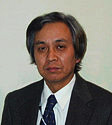 The Kan administration is promoting economic diplomacy. There are multiple pillars in this economic diplomacy, but one of them is to build a free trade regime. The Kan administration is considering whether to participate in the Trans-Pacific Partnership (TPP) agreement. The Japanese media are almost unanimous in their agreement on joining the negotiations, but I’d like to ask the panelists for their views.
The Kan administration is promoting economic diplomacy. There are multiple pillars in this economic diplomacy, but one of them is to build a free trade regime. The Kan administration is considering whether to participate in the Trans-Pacific Partnership (TPP) agreement. The Japanese media are almost unanimous in their agreement on joining the negotiations, but I’d like to ask the panelists for their views.
- Takashi Sakamoto:
-
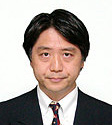 The Yomiuri Shimbun supports Japan’s participation in the TPP negotiations. We believe that for a trading nation like Japan, the liberalization of trade and investment is critically important. In addition, my own personal opinion is that by building a large free trade zone in the trans-Pacific region, including the United States and Australia, it will be possible to engage China in the future as well.
The Yomiuri Shimbun supports Japan’s participation in the TPP negotiations. We believe that for a trading nation like Japan, the liberalization of trade and investment is critically important. In addition, my own personal opinion is that by building a large free trade zone in the trans-Pacific region, including the United States and Australia, it will be possible to engage China in the future as well.
- Rick Wallace:
-
 Australia’s farmers and government definitely want Japan to join the TPP. I think participation in the TPP has several advantages, such as the development of trade relations with other countries. Furthermore, trade liberalization will lead to lower food prices.
Australia’s farmers and government definitely want Japan to join the TPP. I think participation in the TPP has several advantages, such as the development of trade relations with other countries. Furthermore, trade liberalization will lead to lower food prices.
- Dao Thanh Tung:
-
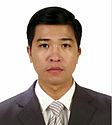 The Japanese economy is now mature, and it will be difficult to expect a high growth rate in the future. The Japanese government needs to find new ways to develop the country, and promoting free trade will be important. Japan’s tariffs in the agricultural sector are also very high. Japan, a developed nation, should join the TPP and promote outward investment in the agriculture sector.
The Japanese economy is now mature, and it will be difficult to expect a high growth rate in the future. The Japanese government needs to find new ways to develop the country, and promoting free trade will be important. Japan’s tariffs in the agricultural sector are also very high. Japan, a developed nation, should join the TPP and promote outward investment in the agriculture sector.
- Masami Ono:
-
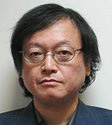 Editorials in the Asahi Shimbun also support the TPP. But joining (sic) the World Trade Organization, promoting the conclusion of free trade agreements (FTAs) and economic partnership agreements (EPAs), and now the TPP negotiations-all this is happening over a very short interval. I am doubtful whether each topic is being studied sufficiently. In today’s multipolarizing world, the idea of an East Asian community has reached a dead lock. I’m personally skeptical as to whether the TPP framework will be a good fit for Japan.
Editorials in the Asahi Shimbun also support the TPP. But joining (sic) the World Trade Organization, promoting the conclusion of free trade agreements (FTAs) and economic partnership agreements (EPAs), and now the TPP negotiations-all this is happening over a very short interval. I am doubtful whether each topic is being studied sufficiently. In today’s multipolarizing world, the idea of an East Asian community has reached a dead lock. I’m personally skeptical as to whether the TPP framework will be a good fit for Japan.
- Li Miao:
-
 There is a lot of interest in the TPP in China. China is interested in why the Kan administration showed interest in joining the TPP. There is suspicion that the United States is behind this and that it might be trying to deter China. I feel that every time Japan gets a new prime minister, there have been changes in the diplomatic slogans but no real progress in Japanese diplomacy itself. One of the reasons for this, I suspect, is that Japan places so much importance on its relations with the United States that it is impossible to develop its own brand of diplomacy.
There is a lot of interest in the TPP in China. China is interested in why the Kan administration showed interest in joining the TPP. There is suspicion that the United States is behind this and that it might be trying to deter China. I feel that every time Japan gets a new prime minister, there have been changes in the diplomatic slogans but no real progress in Japanese diplomacy itself. One of the reasons for this, I suspect, is that Japan places so much importance on its relations with the United States that it is impossible to develop its own brand of diplomacy.
- Park So-Young:
-
 Since the start of the Kan administration, there has been no more diplomatic talk of building an East Asian community. As a result, some South Korean media have been questioning the meaning of an East Asian community. If Japan, which has an economic framework similar to South Korea, promotes the TPP, the South Korean government will no doubt also actively pursue the TPP.
Since the start of the Kan administration, there has been no more diplomatic talk of building an East Asian community. As a result, some South Korean media have been questioning the meaning of an East Asian community. If Japan, which has an economic framework similar to South Korea, promotes the TPP, the South Korean government will no doubt also actively pursue the TPP. - Jameson:
- We should discuss the issue of Japan’s gaining the permanent membership of the United Nations Security Council, because China is the only Asian nation with veto power there. This means that all Asian policy could be vetoed by one nation, China.
- Chair:
- We’d like to discuss the stability of East Asia from the viewpoint of the Senkaku Island issue and the Northern Territories issue.
- Ono:
- Since Russian President Dmitry Medvedev’s visit to Kunashiri Island, it has been a very difficult situation as far as Japanese diplomacy is concerned. But looking back, I feel that we may have made this a bigger issue than it actually is. There was talk that Russia was boosting its military deployment in the Northern Territories, but actually the number of troops is down from 9,000 when the Soviet Union collapsed to 2,000 right now, and most of the weapons used in a military exercise on Etorofu Island date from the 1950s and the 1960s.
- There was a discussion about partially reducing military capabilities in the Kurils. What is happening in the Northern Territories is advancing deployment capabilities, which I think they are doing with China in mind and with an eye to East Asia as a whole. It might have been better for us to think about Japan’s relations with Russia in the context of the Asia-Pacific region.
- Park:
- When President Medvedev visited Kunashiri Island, there was a large photograph on the front page of the JoongAng Ilbo. And because of the Takeshima issue between Japan and South Korea, territorial issue is a topic of major interest in South Korea. There is also stronger interest domestically in how the Japanese school curriculum guidelines address the Takeshima issue.
- Dao:
- I think that the reason why issues concerning territory arise is that as the Chinese economy has surpassed Japan’s, the balance of economic power between Japan and surrounding countries has destabilized, and also Japan’s domestic politics is extremely unstable. Vietnam’s policy is to learn from past experience and establish friendly relations multilaterally with many countries.
- Wallace:
- I think in terms of those issues concerning territory Japan has every right to be very concerned. I do not think the tone of the reporting in the Japanese media has been emotional in that area. There are the issues of the US bases in Okinawa and Japan-US military collaboration in the background, but I don’t think the reporting has been biased.
- Li:
- The collision incident by a fishing trawler off the Senkaku last year generated a lot of attention within China. Opinions over the Internet were that the Japanese attitude toward the Senkakus has become more hard-line. Regarding the northern territories, great interest is shown in China in Russian military build-up and investment by Chinese and South Korean companies. But basically China regards that this is an issue between Japan and Russia. I seldom find Japanese media featuring different, diverse views on the Northern Territories issue. As far as diplomatic issues are concerned, I feel that the Japanese media report principles but not the views or interests of the other countries, taking a very rigid approach. Japanese diplomacy is now at an impasse, and I believe the Japanese media is partly to blame. There is a lot of reporting on domestic politics, but reporting on diplomatic issues is scarce and the content is shallow.
- Sakamoto:
- Looking at how the Japanese media report on diplomatic issues, the reports tend to be very concrete and detailed, but there seems to be a lack of reports that paint a big picture in comparison to how these things get reported by foreign media. One issue with the Japanese media may be the way the system is organized, where political, economic, and foreign news correspondents only cover their own areas. I think that the fluctuation in the Japan-US alliance and the problems with the Senkaku islands and the Northern Territories are not unrelated. The Japanese media should have taken up the implications of the Japan-US alliance’s fluctuation from a worldwide perspective.
- Chair:
- Do you think that the Japanese media are inward-looking?
- Jameson:
- As a characteristic of the Japanese media, there is the press club system. I myself was excluded from the press club, where if you are not a member of a club you are not admitted to press conferences. While the situation has improved considerably compared to the past, I do feel that the press club system makes it difficult to have an equal opportunity for news reporting in Japan.
(3)Session 2: "From the Asia-Pacific to the World-Challenging Global Issues"
- Park (kick-off comments):
- When US President Barack Obama spoke in Prague in April 2009, he advocated a world without nuclear weapons. One year later, he signed a new strategic arms reduction treaty with Russian President Dmitry Medvedev in which the two countries pledged to reduce the numbers of their strategic nuclear weapons to 1,550 each within seven years. However, there is a factor that continues to obstruct progress toward nuclear disarmament, and that is found in North Korea and Iran. North Korea conducted nuclear tests in 2006 and 2009 and could conduct a third nuclear test. North Korea is also suspected of exporting relevant weaponry and technology to third countries, such as Iran and Syria. When North Korea shelled the South Korean island of Yeonpyeong, some conservatives in South Korea and Japan began to discuss their own countries going nuclear. Meanwhile, Iran is enriching uranium, and although it claims that it will not be for military use, there is a possibility that the move towards nuclearization of Iran could lead to the spill over in the Middle East as a whole.
- The other topic on the agenda is climate change. The Kyoto Protocol will expire at the end of 2012, and no new post-Kyoto framework is in place. At COP16 in Cancun, Mexico, the Japanese government made its presence felt. Japan opposed a simple extension of the Kyoto Protocol, under which the United States, India, and China are not committed to any reduction targets. Japan has set itself a target of reducing CO2 emissions by 25 percent compared to 1990 levels by 2020 and is displaying leadership in the environmental field. In preparation for the COP17 meeting, I believe the role that the media can play in reporting each country’s preparations and on climate change issues should be a subject for discussion.
(Nuclear disarmament and non-proliferation)
- Chair:
- Regarding nuclear disarmament, there is the theme of global nuclear disarmament and regional issues, namely, the problem of North Korea.
- Sakamoto:
- During the Clinton administration, when then US Secretary of State Madeleine Albright visited North Korea, both Mr. Fuse and I also went to Pyongyang. I also reported on North Korea during the Bush administration, but not much progress has been made over the past 20 years. The issue of the abduction of the Japanese nationals by North Korea is extremely important for the Japanese people, but it is difficult to gain the proper understanding of the foreign media of the importance of the issue. I feel that this is frustrating for the Japanese media.
- Chair:
- The situation that the United States was placed during the Cuban missile crisis and Japan’s situation now with North Korea are sometimes compared. Do you think that this is far-fetched?
- Jameson:
- No, I don’t think so. I think the issue of North Korean missile is far more serious. It’s suspected that North Korean nuclear facilities are underground. Since the nuclear facilities can’t be located, that means you cannot conduct inspections. In the six-party talks, negotiations should be more focused on China, which has influence over North Korea.
- Chair:
- How do you view reporting by Japanese newspapers and television on the North Korean nuclear issue, the missile issue, and the abduction issue?
- Wallace:
- Well, I can understand the reporting attitude of the Japanese media on the abduction issue. This is certainly a serious issue for the abductees and their families, and finding the way to the solutions is very difficult, with no real easy answer.
- Chair:
- Every year at the Conference on Disarmament, the Chinese delegation says that it is important not to turn the situation in East Asia into an Iraq or an Afghanistan. How is the issue of whether China can persuade North Korea reported in China?
- Li:
- On the North Korean nuclear problem, the Chinese attitude is very clear. China is opposed to it. But in China, there is almost no reporting on issues relating to North Korea. There are a lot of expectations outside China, including Japan, about China playing a significant role vis-à-vis North Korea. But on the Internet some people in China claim that even though there is the issue of North Korea’s nuclear program, Japan focuses too much on the abduction issue.
- Chair:
- Vietnam went through long years of wars. As a Vietnamese reporter, how do you feel about the threat from North Korea and the Japanese media’s reporting and reactions to this?
- Dao:
- Young people in Japan do not seem to be very interested in war issues. I hope the media in Japan will play a role in raising awareness among young people. Now we have many friendly relationships with former enemies. That’s because we have made efforts to look toward the future. Japan deserves praise for its efforts in taking the initiative to work toward the elimination of nuclear weapons.
- Chair:
- Can nuclear and abduction issues be resolved through the six-party talks? I do not advocate the use of force, but I don’t think North Korea is going to budge without military pressure.
- Ono:
- The North Korean issue is closely related to the security in East Asia. There needs to be long-term engagement so that North Korea should not resort to extreme measures. Democratization in Eastern Europe, the fall of the Soviet Union, regime change in the Middle East-they demonstrate no system is permanent. The problem is that the rest of the world must think about how it should respond when the old regime is gone.
- Chair:
- Do you think the Japanese media talks too much about the abduction issue?
- Park:
- If I have to answer yes or no, I would say yes. On the other hand, in South Korea, it is said that there are more than 400 nationals who were abducted by North Korea, and some people question why the South Korean government does not criticize North Korea to its face on this issue.
- Chair:
- Expanding the topic somewhat, I would like to talk about the nuclear threat to the world, such as nuclear weapons in India and Pakistan.
- Sakamoto:
- The global order is changing. Japan was also shocked at the nuclear agreement between the United States and India. As for the Japan-India nuclear energy cooperation agreement, opinion in the Japanese media was cautious, but there is a strong tendency not to oppose it head-on. Japan today is surrounded by countries with nuclear weapons, and how to communicate to readers the potential for and the threat of nuclear proliferation is an issue. The reaction of many readers is that missiles are more of a threat than nuclear proliferation. The very threat of nuclear weapons is something that the Japanese media should try to communicate to readers.
- Chair:
- Japan stipulates the three non-nuclear principles, and yet we depend on the nuclear umbrella. Is this a contradiction?
- Jameson:
- Japan started cutting defense expenditures beginning with the year that the North Korean Taepodong missile was shot over the country. If Japan doesn’t go under the American nuclear umbrella, specific issues, such as where to deploy nuclear weapons in Japan, or whether Japan would deploy a fleet of nuclear-armed submarines, and the cost, should be discussed. But there is no talk about these matters.
- Chair:
- What do you think about the argument that Japan should go nuclear?
- Li:
- Japan is the only country in the world to have suffered atomic bombings, and the fact that it has submitted a draft resolution on nuclear disarmament to the UN General Assembly for 17 consecutive years is praiseworthy. But China is critical of Japan urging China to advance nuclear disarmament. China has made it clear that it will not use nuclear weapons against non-nuclear weapon states. The United States has not given up the option of using nuclear weapons to attack other countries, but Japan has not said anything about this. It is not fair for Japan to criticize only China and not raise a finger against the United States.
- Ono:
- When Pakistan’s President Zardari visited Japan recently, he requested that Japan negotiate a civil nuclear agreement with Pakistan, as it is doing with India. This was an extremely important question in terms of how Japan would be involved in a possible expansion of nuclear strategies throughout South Asia. Because of the events unfolding in the Middle East, however, this matter was not reported. Japanese newspapers are still weak when it comes to having an awareness of problems arising in the world. It seems that the Ministry of Foreign Affairs itself treated President Zardari’s visit lightly, as evidenced by the fact that it only held a press briefing before the visit and not after. I think both the Ministry of Foreign Affairs and the press did not sufficiently address President Zardari’s visit. Furthermore, even though the rules of the game have changed, now that India has a nuclear agreement with the United States, Pakistan’s possible frustration needs to be examined from a different angle.
- Chair:
- There is a military threat from North Korea, but do you feel safe in Japan?
- Wallace:
- In terms of a military threat, I think at least it’s safer to be in Tokyo than Seoul.
- Chair:
- Nuclear technology is said to have proliferated from North Korea to Myanmar. As a Vietnamese journalist, how do you feel about this?
- Dao:
- I’m aware of some reports that Myanmar has nuclear development facilities. Vietnam supports the Nuclear Non-proliferation Treaty.
- Park:
- Here in Japan, I often get the questions "Does North Korea really have nuclear weapons?" and "Does South Korea really aim for reunification?" My answer to the first question is yes, I believe North Korea does have nuclear weapons. As to the second question, first I think we have to bring North Korea back to the negotiating table. What comes next will come after that.
- Jameson:
- Does South Korea look forward to reunifying with a North Korea that has a nuclear arsenal?
- Park:
- I am not a member of the government of South Korea, so I cannot answer that question accurately. But the precondition for North Korea is to abandon its nuclear weapons.
- Sakamoto:
- As a result of the North Korean problem, the cooperation among Japan, the United States, and South Korea has strengthened. It is not simply a challenge but also an opportunity. Surrounding countries may rather want to avoid a situation in which Japan moves away from its dependence on the United States and handles its own national defense.
(Climate change)
- Chair:
- Climate change is a policy area that Japan is putting strong emphasis on. By the end of 2012, the combined amount that Japan will have provided in assistance to developing countries to tackle the problem of climate change will be 1.75 trillion yen [approx. US$15 billion] , public and private sources combined. The Japanese media are beginning to say that climate change is not an issue that Japan can tackle only by itself. I’d like to ask the panelists for their views on the reporting of the Kyoto Protocol and COP16 by Japan’s media.
- Wallace:
- Reporting on climate change is getting scarcer, because the media’s attention is gradually being diverted by other issues, such as the global financial crisis, the Middle East, and many other problems.
- Chair:
- How about reporting that claims China should reduce its emissions?
- Li:
- Japan’s statement of reducing emissions by 25 percent has been given a lot of credit in China. China welcomes technology transfers from Japan for energy-saving technologies so it is wary of reductions in Japan’s ODA to China.
- Park:
- South Korea’s obligations to reduce emissions will begin in 2013, but there has been strong resistance from its corporate sector to the targets that South Korea has put forth prior to the start of obligations, so it will be impossible to realize them. Owing to domestic considerations, it will not be easy for the likes of China and India to implement obligations either.
- Jameson:
- According to an expert’s estimates, to increase Japan’s GDP by 1 percent, the amount of energy required would be half that needed by the United States to do likewise and one-eighth that needed by China. Japan’s energy efficiency is very high.
- Dao:
- Japan’s goal is very ambitious, and it should be given credit for its efforts to reduce emissions. I hope that Japan’s environmental technology can also be used for the benefit of developing countries.
- Chair:
- I’d like to ask Mr. Ono and Mr. Sakamoto for their comments on the role of the media in measures to halt global warming.
- Ono:
- It’s difficult for me to answer regarding the role of the media, so I would like to talk about how we are struggling with this issue. The Asahi Shimbun’s view is that the trend toward a low-carbon society is not going to change and that, in terms of diplomacy too, Japan’s goal of reducing emissions by 25 percent does not need to be changed. In the event that this cannot be achieved, we should think over what we can do at that time.
- Sakamoto:
- I can certainly understand Japan’s position at COP16 against simply extending the Kyoto Protocol. There was a lot of debate within the Yomiuri Shimbun, between reporters covering social issues and those covering economic issues, when Japan proposed its goal of cutting emissions by 25 percent, and the projections on the impact of the 25 percent reduction issued by the various ministries were also different. When Japan first proposed this goal, reactions from the world were very positive, but the situation has changed since then. In view of present conditions, I think it might be necessary to reconsider the target.
(4)Wrap-up by the Chair
Looking at the international community as a whole, we can see that it is in a process of change. The leadership of major countries will change in 2012, and recent developments in the Middle East have been dramatic. There is also a possibility that a change in people’s attitude will spread around the world. In the Asia-Pacific region as well, peace and stability are still a long way off. One thing we can say for certain, though, is that the present world cannot be maintained upon a single value. Hopefully we can mutually recognize that many values exist and hold our discussions on the basis of that approach. The role of the media in the future should be to exchange differing views from people of various nationalities, just as we have done in this symposium.
Back to Index
